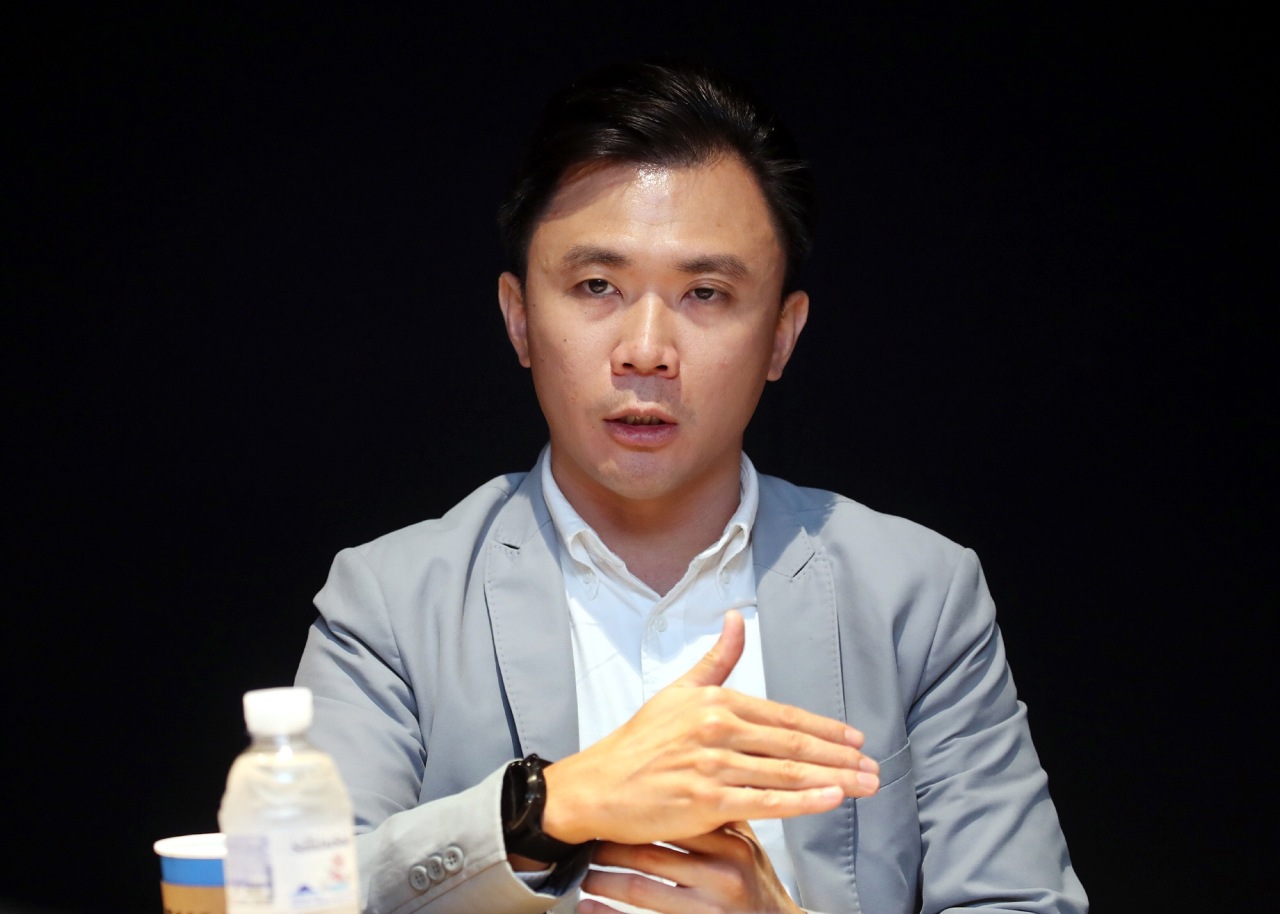Global automotive companies are starting to heavily invest in autonomous driving, customized infotainment systems and sensor technology to improve driver assistance features. And it has become critical to secure talents for relevant technology development.
Startup Autobahn, a Mercedes-Benz-backed open innovation platform for startups founded in 2016 under the German automotive group Daimler, sees that the automotive industry is now going through a “war of startup talents.”
“Throughout the past three years, Startup Autobahn has managed to work with some 5,000 startups, which is a big value for us. We need their entrepreneurship spirit,” said Philipp Gneiting, head of Open Innovation and in charge of the Startup Autobahn, during an interview with reporters on Wednesday.
 |
Philipp Gneiting, head of Open Innovation at Daimler Group, speaks during a meeting with reporters in Seoul on Wednesday. (Mercedes-Benz Korea) |
Gneiting visited Seoul to speak as a keynote speaker at SparkLabs Demoday to present the future mobility strategies of Mercedes-Benz and investment plans in startups.
Working with talented startups has become critical for the legacy industry including auto hardware companies for sustainability, Gneiting said.
“Not only that, talented startups attract talents. They grow organically within the organization, so startup talents help our future employment,” he said.
In terms of Korea’s startup ecosystem, Gneiting said he finds startups here can help Daimler to tap into the future of mobility, especially in the sector of infotainment and in-car gaming.
“(Korean startups) are more progressive than German startups. It is my second time here in Korea and I was really amazed at the quality of their products, deep understanding of technology and their craziness in certain ways, their cool, new way of thinking which I cannot find in Europe,” he said, adding that he has been meeting with Korean startups in autonomous, sensor tech, fashion and gaming field.
“Korean startups’ level of product quality and technologies are pretty high, but most of their works are very localized and they can expand it,” added David Goh, a general manager of Daimler Mobility Services Africa and Asia Pacific.
 |
David Goh, general manager of Daimler Mobility Services Africa and Asia Pacific (Mercedes-Benz Korea) |
Gneiting also stressed the automotive industry’s shifting focus to startup-minded and sharing economy business, which he said implied customer demand.
As part of the automaker’s plan for survival in the automotive revolution and meet consumer demand, Daimler has been developing its future mobility technologies based on four pillars -- Connected, Autonomous, Shared, Electric -- or CASE.
“We, as a company, are interested in providing a sustainable way of mobility, like reducing carbon footprint, even to zero levels. We are going to not only provide premium mobility but also develop green, sustainable, sharing economy-based mobility by working closely with startups and their new ideas,” he said.
By Kim Da-sol (
ddd@heraldcorp.com)









